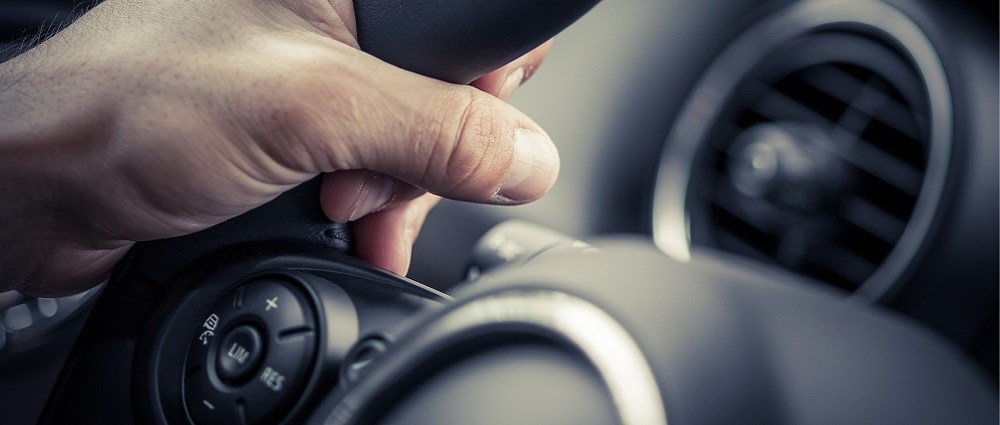Tips on combating car depreciation
Although personal contract hire (PCH) has become a more mainstream1 route for getting behind the wheel of a new car in the UK in recent years, many private motorists still take the traditional approach, trading their ‘old’ car against the price of a ‘new’ one in an arrangement called part exchange.
It’s a widely-known fact that a new car drops in value the moment it’s driven off the dealer’s forecourt and after three years will likely be worth around 40% of its original price2. Depreciation is the difference between the price paid for a car and what it would be worth if it was sold on or traded in. Depreciation is sharp during the first year but gradually slows down, so cars of eight years of age and older don’t tend to depreciate much further, if at all.
How you can help minimise your car’s depreciation
For people on the verge of choosing a new car, the most obvious tip would be to plump for a model known for holding its value better than others, focussing on relatively smaller, more fuel-efficient cars. Suggestions can be found on car depreciation tables3 published by most car magazines.
Many drivers, though, are simply keen to prolong the lives of their current cars for financial, circumstantial, practical or other reasons, and can benefit from following advice:
- Make sure your vehicle's serviced regularly in accordance with the manufacturer’s requirements, as a full service history (FSH) is one of the key factors that used-car buyers and traders look for. This is because it means that the vehicle stands a better chance of remaining in optimum mechanical order for as long as possible. Engine oil should be replaced as often as is feasible and the air filter, spark plugs, coolant, brake fluid and linings, cambelt, battery, screenwash and power steering fluid should also be changed at suitable intervals throughout the car’s life.
- Give your car regular TLC so that prospective future buyers will perceive that it’s a safer investment compared to a rust bucket that has clearly been neglected. Make sure your car gets washed regularly as this will prevent dirt, grease and grime having a negative effect on the bodywork and other components, such as brakes. Responsible car care also includes regularly making sure the tyres are correctly inflated and aren’t showing signs of uneven wear.
- Get a professional to promptly check and repair any damage if your car unfortunately sustains any knocks, even if they’re only relatively minor. Cold temperatures or dirt can worsen what was originally only surface damage.
- Keep your car as close to its standard specification as possible, refraining from changing the alloy wheels, seats, steering wheel, body kit, windows, lights or other components. This is because private and trade buyers prefer to view cars that still feature their original parts, as they are easier to resell compared to cars modified to someone’s personal tastes4.
- Only drive it when necessary, as this will help to keep the mileage down. Cars with lower mileages tend to command higher resale values. Broadly speaking, cars that cover more than 12,000 miles a year tend to lose their value more quickly.
- Park in a garage or off the road at home if possible, because this will reduce the risk of the car sustaining any damage, whether deliberate or accidental, from things like bicycles, pushchairs, couriers, passing traffic, debris or the weather.
- Park your car out of direct sunlight during the daytime if you can5, because the sun’s rays can damage a car's paintwork over a sustained period and can cause bleaching to occur on the upholstery inside.
- Treat your car gently, trying not to start and stop it too often during cold temperatures, as this will put extra strain on the engine and other components. Instead, try to plan your time better, so your car will be used for longer periods each time you set out in it, giving it the chance to warm up properly.
- Smooth driving is another way of preserving the life of a car, because gentle cornering and steering, along with smooth braking and acceleration, also help to reduce the stress it’s placed under and will extend the life of tyres, brakes and other parts.
Combatting depreciation when it’s time to sell your car comes with its own additional tips, but for those motorists seeking to extend the lives of their current cars for as long as possible, much can be achieved by following the advice we’ve outlined here.
Sources:
- https://www.contracthireandleasing.com/car-leasing-news/vehicle-leasing-brokers-2015-growth/
- http://www.whatcar.com/advice/buying/depreciation-what-is-it-and-how-do-i-avoid-it/
- http://www.carbuyer.co.uk/reviews/recommended/slowest-depreciating-cars-on-sale
- https://www.moneyadviceservice.org.uk/en/articles/car-depreciation-explained#tips-for-minimising-depreciation
- https://www.yourmechanic.com/article/top-10-ways-to-extend-the-life-of-your-car

